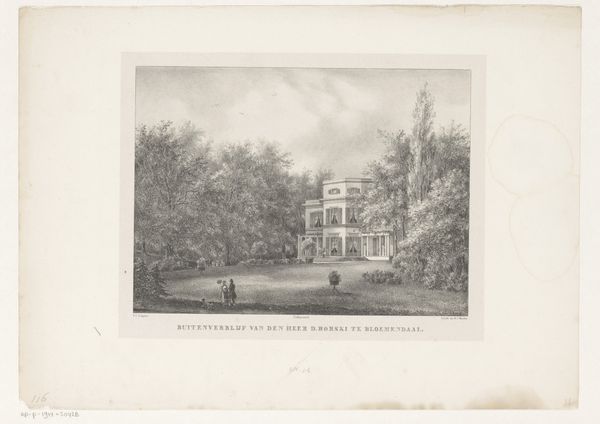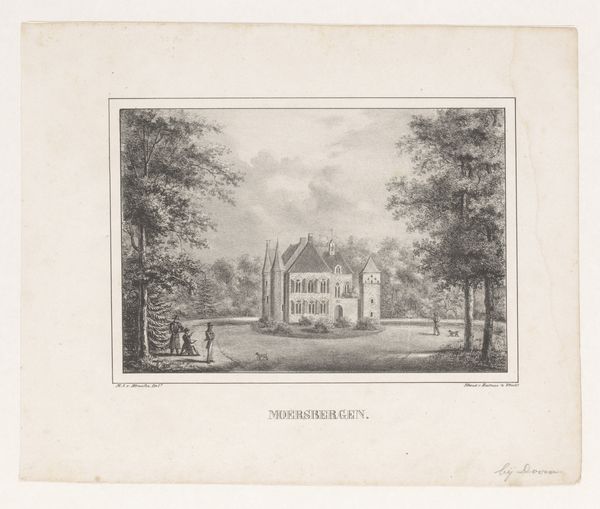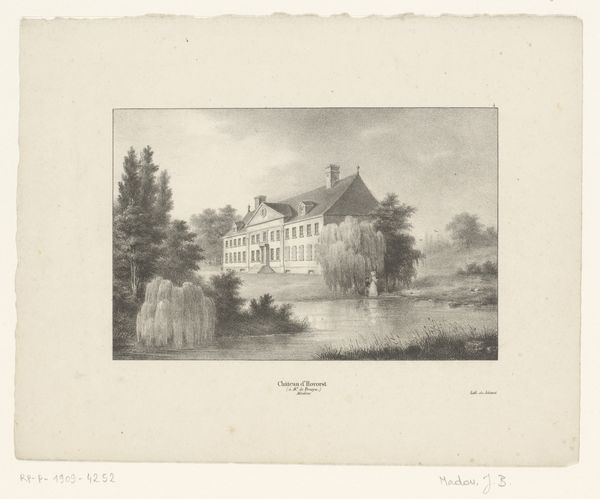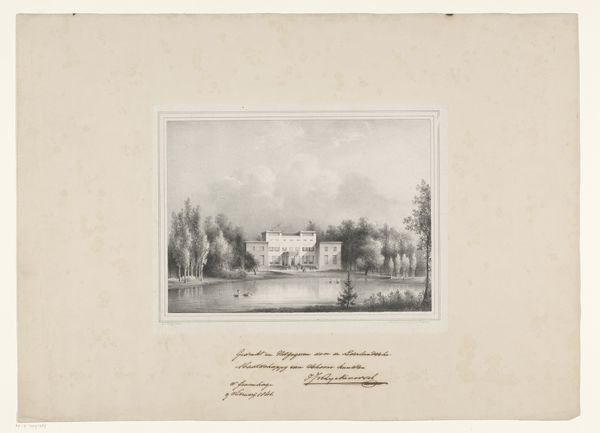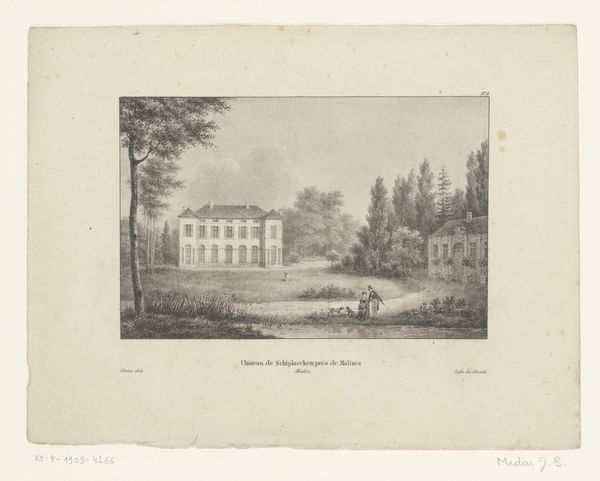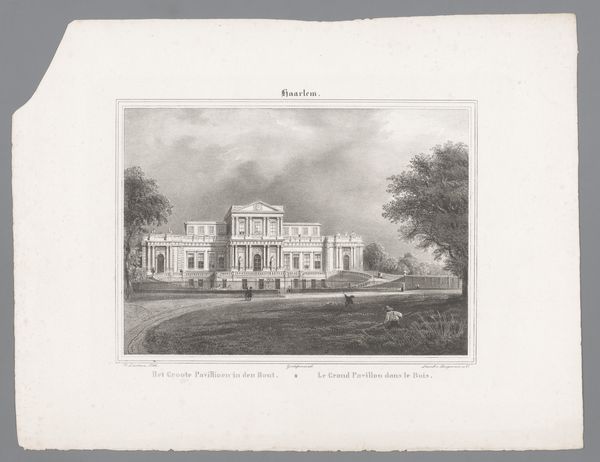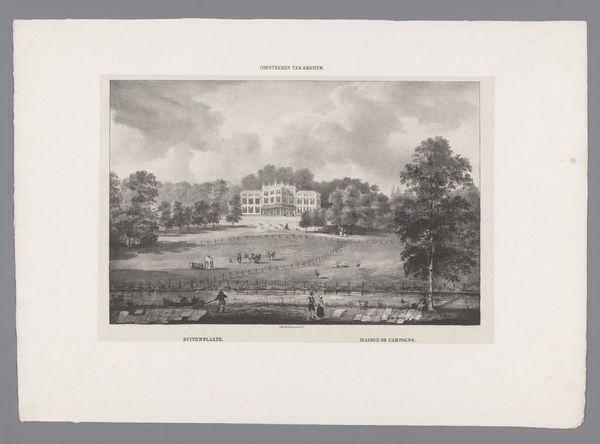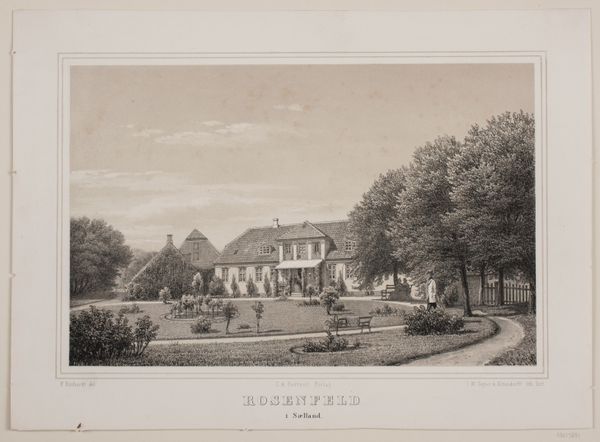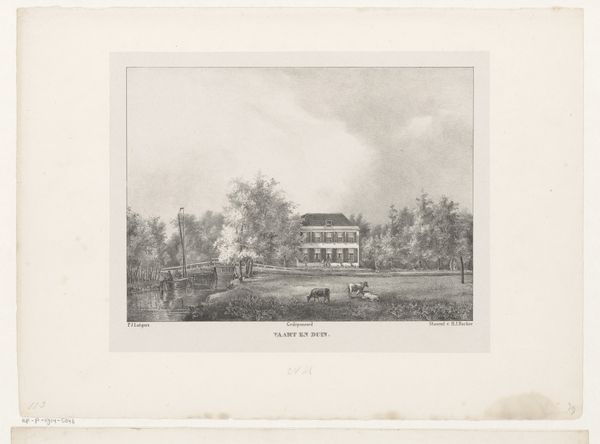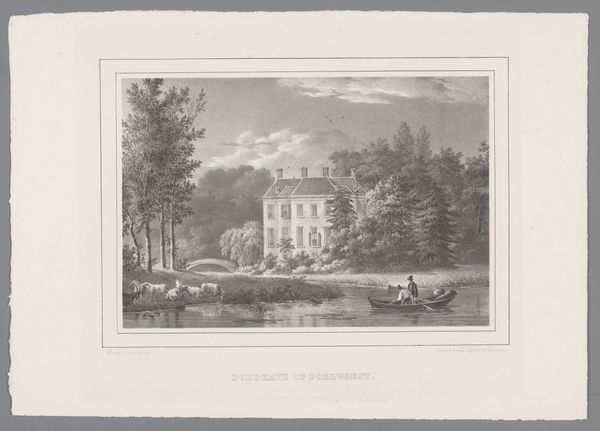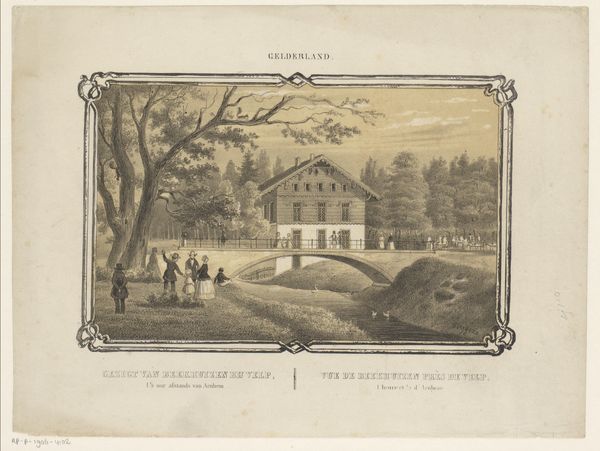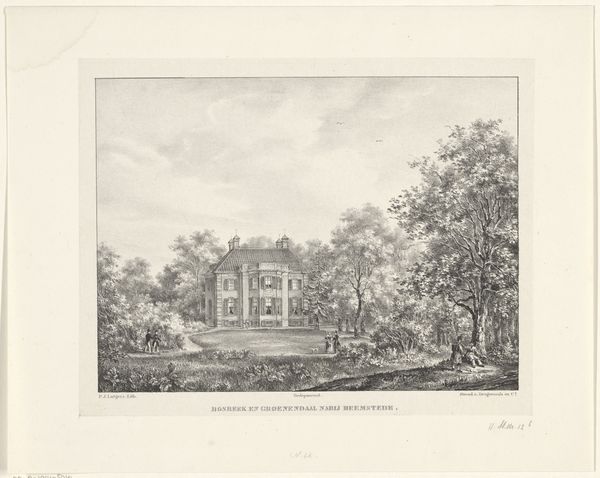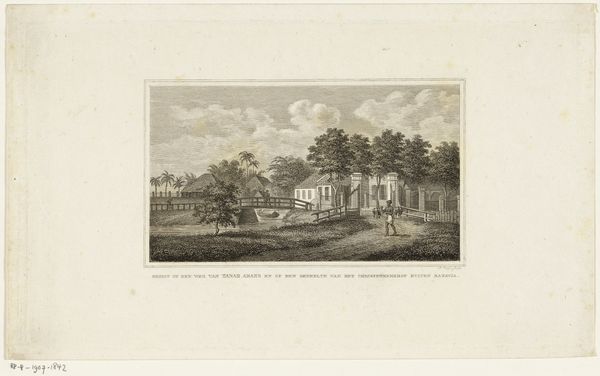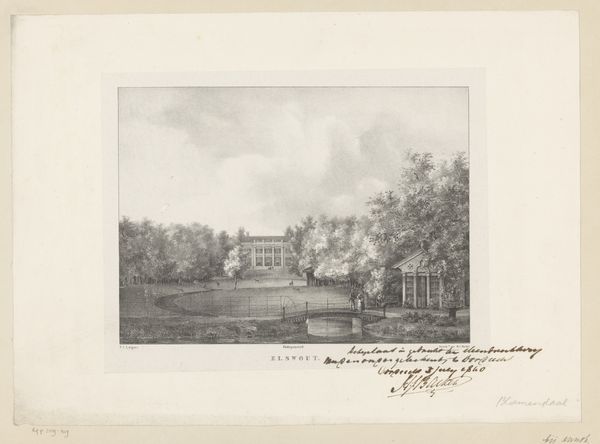
drawing, print, paper, pencil, engraving
#
drawing
#
aged paper
#
pale palette
#
parchment
# print
#
old engraving style
#
landscape
#
paper
#
romanticism
#
pencil
#
engraving
Dimensions: height 235 mm, width 286 mm
Copyright: Rijks Museum: Open Domain
Editor: Here we have "Verandawoning bij kasteel Moersbergen," created around 1828-1830 by Theodoor Soeterik. It’s a print, an engraving on paper. It feels very…serene, almost idealized. There’s this grand house, cows grazing peacefully. How do you interpret this work, considering the historical context? Curator: Well, it's important to note the Romanticism movement flourishing at this time, which highly emphasized emotion, nature, and the past. These idyllic landscape depictions, like Soeterik's, served specific functions. They weren’t just pretty pictures. Editor: What do you mean by functions? Curator: Consider who was commissioning and consuming these images. Often it was the wealthy elite. Images of grand estates like this subtly reinforced their social standing. Look at the deliberate framing, how the "civilized" estate is contrasted with the implied "wildness" of the background forest. Editor: So, it's not just about appreciating nature. It's also about projecting a certain image of power and control? Curator: Precisely. The art market then, as now, played a role in shaping perceptions and perpetuating existing social hierarchies. It idealizes country life, masking the labor and social inequalities that were undoubtedly present. How do you think the emerging middle class at the time would have viewed images like this? Editor: Probably with a mix of admiration and perhaps a little resentment, maybe even inspiring them to want that life themselves. Curator: Exactly. These seemingly simple landscapes carried a lot of cultural weight, reinforcing social structures while also shaping aspirations. Editor: I see it differently now! I initially focused on the aesthetic appeal, but it is interesting to examine its potential social role and how such idyllic image would subtly carry deeper meanings about class and power.
Comments
No comments
Be the first to comment and join the conversation on the ultimate creative platform.
